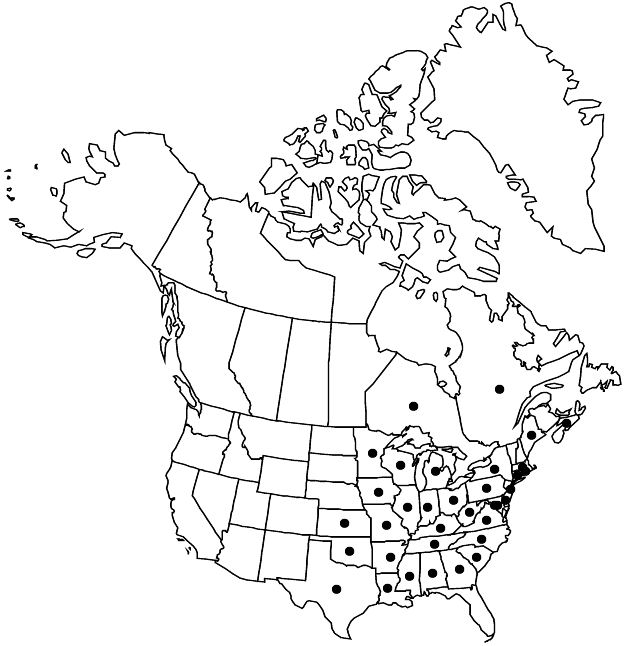Difference between revisions of "Viola sagittata var. sagittata"
FNA>Volume Importer |
imported>Volume Importer |
||
| Line 3: | Line 3: | ||
|accepted_authority=[E] | |accepted_authority=[E] | ||
|publications= | |publications= | ||
| + | |special_status={{Treatment/ID/Special_status | ||
| + | |code=E | ||
| + | |label=Endemic | ||
| + | }} | ||
|basionyms= | |basionyms= | ||
|synonyms={{Treatment/ID/Synonym | |synonyms={{Treatment/ID/Synonym | ||
| Line 58: | Line 62: | ||
|publication title= | |publication title= | ||
|publication year= | |publication year= | ||
| − | |special status= | + | |special status=Endemic |
| − | |source xml=https:// | + | |source xml=https://bibilujan@bitbucket.org/aafc-mbb/fna-data-curation.git/src/bb6b7e3a7de7d3b7888a1ad48c7fd8f5c722d8d6/coarse_grained_fna_xml/V6/V6_278.xml |
|genus=Viola | |genus=Viola | ||
|species=Viola sagittata | |species=Viola sagittata | ||
Revision as of 00:38, 28 May 2020
Leaves: earliest blades ovate to elliptic; mid-season blades ovate or narrowly elliptic to narrowly deltate, 1.5–7 × 1–5 cm, base sagittate, hastate, or ± cordate, margins serrate, ciliate or eciliate, surfaces glabrous or sparsely pubescent. Sepal margins eciliate. Cleistogamous flowers on ascending to erect peduncles. 2n = 54.
Phenology: Flowering Mar–May.
Habitat: Sandy, open woods, fields, disturbed ground, roadsides, powerline rights-of-way
Elevation: 50–2500 m
Distribution

N.S., Ont., Que., Ala., Ark., Conn., Del., D.C., Ga., Ill., Ind., Iowa, Kans., Ky., La., Maine, Md., Mass., Mich., Minn., Miss., Mo., N.J., N.Y., N.C., Ohio, Okla., Pa., R.I., S.C., Tenn., Tex., Va., W.Va., Wis.
Discussion
Although exhibiting variation in leaf-blade shape, var. sagittata is usually easily distinguished. There have been misconceptions regarding the identity of Viola emarginata, a species thought for a time to be different from V. sagittata. The type specimen of V. emarginata is conspecific with that of V. sagittata; E. L. Greene (1898b), apparently not having seen the type, portrayed V. emarginata with a somewhat deltate leaf form. N. H. Russell and A. C. Risser (1960) suggested that most collections representing V. emarginata were hybrids.
Variety sagittata reportedly hybridizes with V. cucullata (= V. ×porteriana Pollard), V. hirsutula (= V. ×redacta House), V. pedatifida var. brittoniana (= V. ×mulfordiae Pollard), V. sagittata var. ovata (= V. ×abundans House), and V. sororia var. sororia (= V. ×conjugens Greene).
Selected References
None.